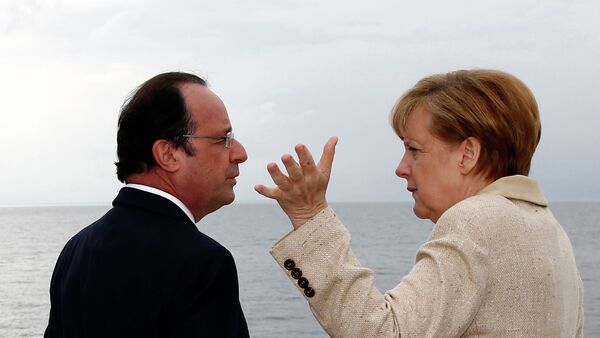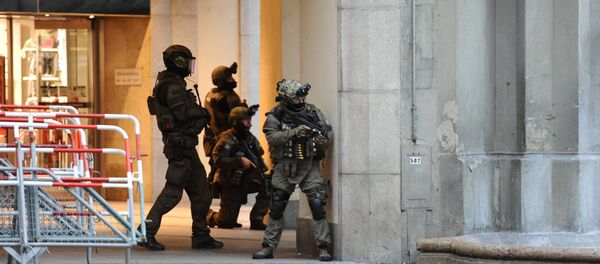British Prime Minister Theresa May has said Britain must be allowed to regulate the level of immigration — despite the fact that the UK is heavily dependent on foreign workers, particularly in the health and public transport sectors.
Merkel told a meeting of German industry leaders and policymakers in Berlin:
"Brexit negotiations won't be easy."
She said that full access to the internal EU market was conditional on the freedom of movement, otherwise "each member state will start doing what it wants."
Hollande told a meeting at the Jacques Delors Foundation:
"Britain has decided to go for a Brexit, in fact I believe a hard Brexit. Well, we have to follow through with Britain's wishes to leave the European Union and we need to be firm. If not, we would jeopardize the fundamental principles of the EU."
However, that very freedom of movement policy lies at the heart of the current migrant crisis in Europe, centering on the Schengen area. Most EU member states — except the United Kingdom and Ireland — are members of the Schengen area, with no border controls between member countries.
What is the new European Border & Coast Guard Agency & how will it work? #EUBorderGuard explained: https://t.co/WqZ9LHnQEw [Fact Sheet] pic.twitter.com/38dbJEVCMK
— European Commission (@EU_Commission) October 6, 2016
Bulgaria, Croatia, Cyprus, and Romania are not Schengen members, but are legally obliged and wish to join the area. Iceland, Liechtenstein, Norway, and Switzerland, are not members of the EU, but have signed agreements on association with the Schengen Agreement. Monaco, San Marino, and Vatican City — can be considered de facto participants.
Border Controls
Since the massive influx of migrants into Europe — precipitated by Merkel's declarations that Germany's doors were "open" to refugees — many countries have erected fences and border controls. The fact that so many migrants were able to enter the Schengen area so easily and then travel on throughout Europe unchecked exposed massive security flaws in the outer borders of Schengen.
DEATH IN THE MEDITERRANEAN. #Refugees and #migrants. Part 2 pic.twitter.com/jayqUjVetf
— Aris Messinis (@ArisMessinis) October 5, 2016
The terrorist attacks in Paris, Brussels, Germany, Nice and other cities also exposed major shortcomings in security vetting and intelligence-sharing across Europe, with terrorists able to travel freely in and out of Schengen unseen.
Many countries have refused to take in migrants according to a mandatory quota system, proposed by Brussels. Both Slovakia and Hungary are taking the European Commission to court over the issue.
Merkel and Hollande are now facing rising Islamophobia and growing support for right-wing anti-immigration parties and have no certainty of winning elections in 2017, when immigration will — just as in the Brexit referendum — play a central role.
Talking tough on freedom of movement, ahead of the Brexit negotiations, could backfire on both leaders, with many citizens in the EU and the larger Schengen area sympathetic to British demands to control the level of immigration into its country.
If Merkel and Hollande lose their respective elections next year and the European migrant crisis continues to expose deep divisions in Europe, tough talk on freedom of movement of people may appear somewhat hollow in negotiations over Britain's trading relationship with the EU.




